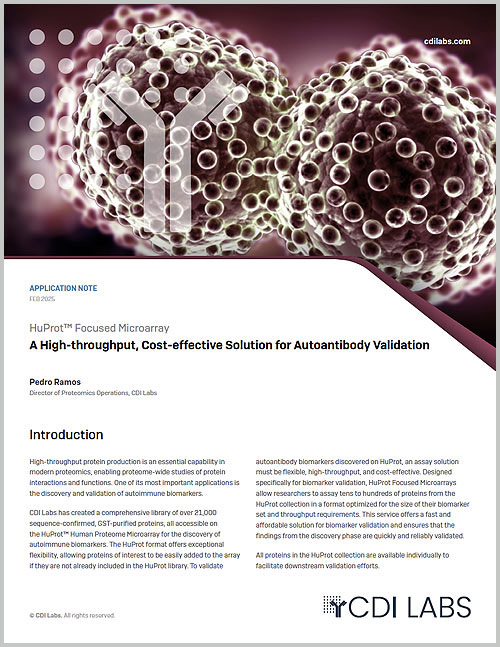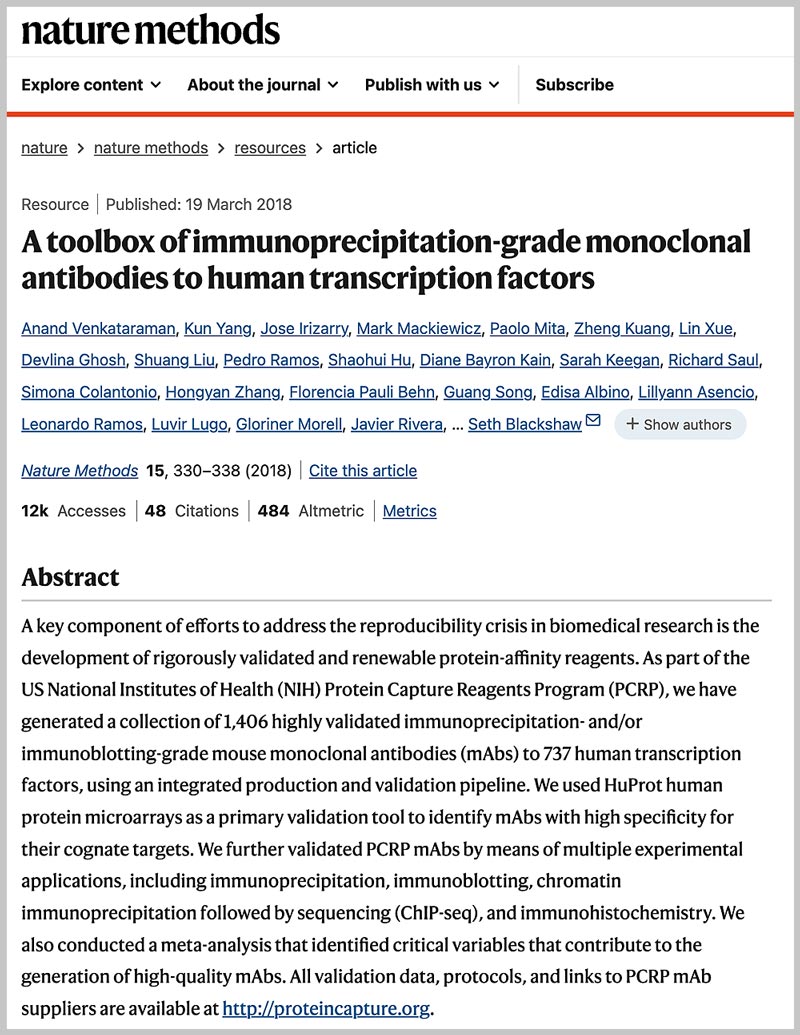- Follow Us
CDI Labs Services for
Antibody Specificity Validation
HuProt tests and validates that the antibody recognizes its intended target with high specificity.
REQUEST INFOHuProt Validates Antibody Specificity
Validates that antibodies recognize its intended target with high specificity while exhibiting minimal cross-reactivity with unrelated proteins or molecules
Monoclonal antibody specificity validation is a crucial step in antibody development. Specificity testing validates that the antibody recognizes its intended target with high specificity while exhibiting minimal cross-reactivity with unrelated proteins or molecules.
A High-throughput, Cost-effective Solution for Autoantibody Validation
Introduction
High-throughput protein production is an essential capability in modern proteomics, enabling proteome-wide studies of protein interactions and functions. One of its most important applications is the discovery and validation of autoimmune biomarkers. CDI Labs has created a comprehensive library of over 21,000 sequence-confirmed, GST-purified proteins, all accessible on the HuProt™ Human Proteome Microarray for the discovery of autoimmune biomarkers. The HuProt format offers exceptional flexibility, allowing proteins of interest to be easily added to the array if they are not already included in the HuProt library. To validate autoantibody biomarkers discovered on HuProt, an assay solution must be flexible, high-throughput, and cost-effective. Designed specifically for biomarker validation, HuProt Focused Microarrays allow researchers to assay tens to hundreds of proteins from the HuProt collection in a format optimized for the size of their biomarker set and throughput requirements. This service offers a fast and affordable solution for biomarker validation and ensures that the findings from the discovery phase are quickly and reliably validated.
In this featured publication, HuProt™ microarray was used as the primary validation tool to identify mAbs with high specificity for their cognate targets. A total of 122,662 antibodies were tested using 2 x 7 array format mini-chips, and subsequently 5,882 antibodies were tested on HuProt. The entire pipeline identified 1,406 highly validated immunoprecipitation- and/or immunoblotting-grade mouse monoclonal antibodies against 737 human transcription factors.
A toolbox of immunoprecipitation-grade monoclonal antibodies to human transcription factors
Abstract
A key component of efforts to address the reproducibility crisis in biomedical research is the development of rigorously validated and renewable protein-affinity reagents. As part of the US National Institutes of Health (NIH) Protein Capture Reagents Program (PCRP), we have generated a collection of 1,406 highly validated immunoprecipitation- and/or immunoblotting-grade mouse monoclonal antibodies (mAbs) to 737 human transcription factors, using an integrated production and validation pipeline. We used HuProt human protein microarrays as a primary validation tool to identify mAbs with high specificity for their cognate targets.


